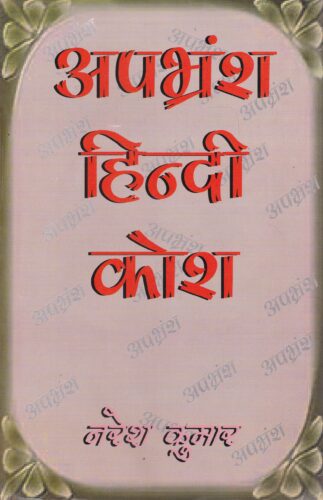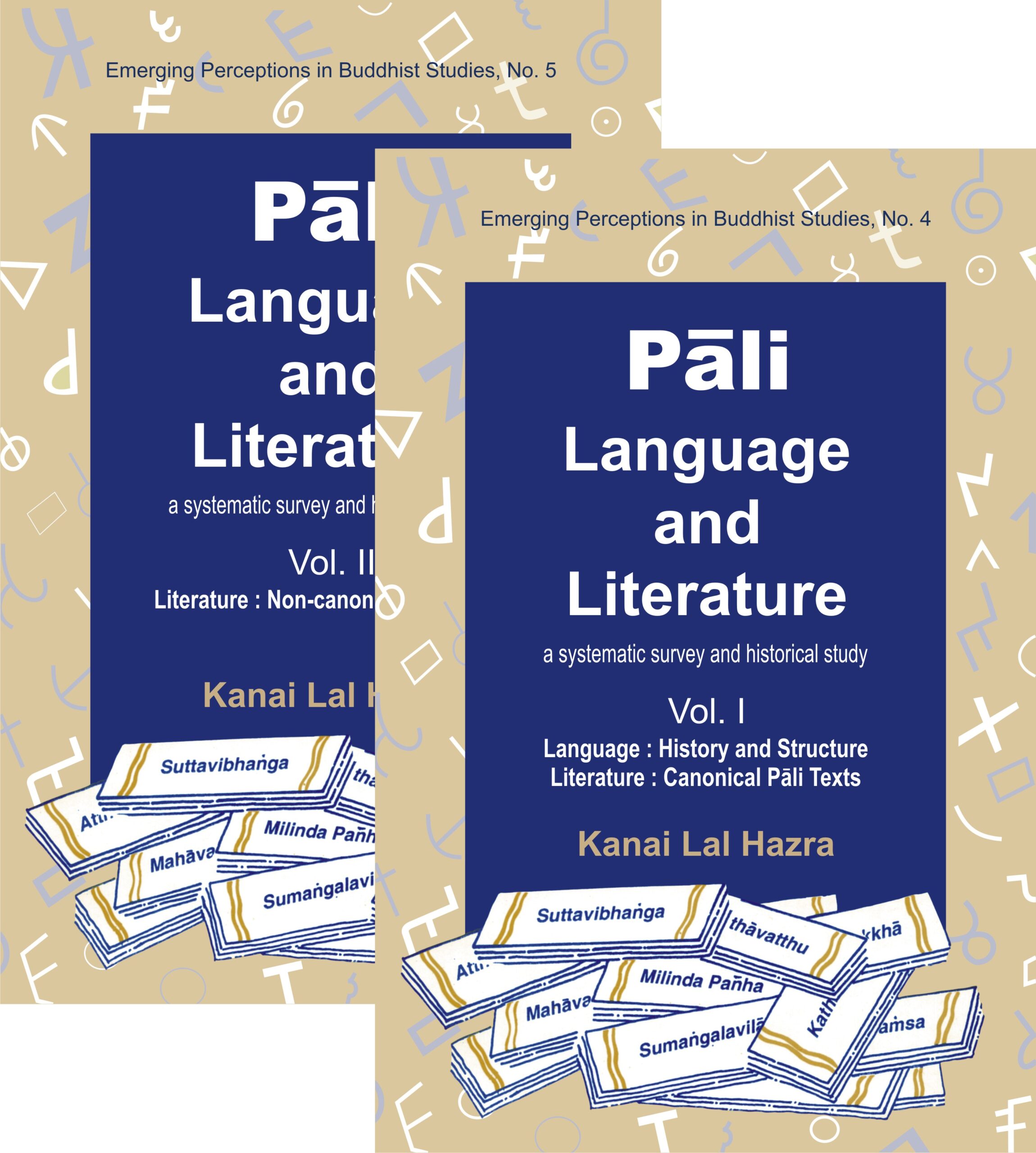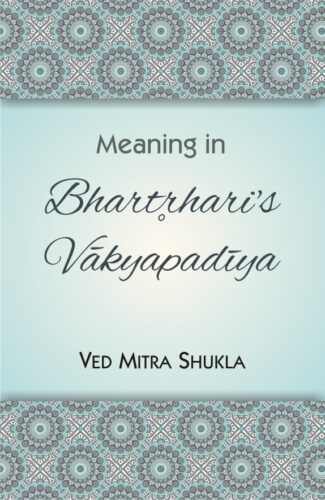

Apbharamsa Hindi Kos...
Apbharamsa Hindi Kosha
Apabhramsa-Hindi-Dictionary by: Naresh KumarThis Dictionary of Hindi Apabhramsa gives in detail the grammatical importance of words, their meanings, correct spellings, the alternate words and their various usages as mentioned by lexicographer Naresh Kumar.
₹1,500.00 Original price was: ₹1,500.00.₹1,350.00Current price is: ₹1,350.00.
ISBN: 9788124601365
Year Of Publication: 1999
Edition: 1st
Pages : xlv, 869
Language : Hindi
Binding : Hardcover
Publisher: D.K. Printworld Pvt. Ltd.
Size: 23 cm.
Weight: 1500
This Dictionary of Hindi Apabhramsa gives in detail the grammatical importance of words, their meanings, correct spellings, the alternate words and their various usages as mentioned by lexicographer Naresh Kumar.

- Sale!Pali Language and Literature by: Kanai Lal Hazra
₹2,500.00Original price was: ₹2,500.00.₹2,250.00Current price is: ₹2,250.00.In Pali is preserved the Buddhist canon. Which, considered as the most authentic form of Buddhavacana, constitutes the very matrix of its 2500-year-long Theravada tradition. A refined, widely-spoken language of the early Middle Indic (Indo-Aryan) stage: about bc 600-200, Pali has also left, for posterity, a splendid legacy of secular literature that captures contemporary socio-cultural milieus not only of India, but of Myanmar, Thailand, Sri Lanka, and other neighbouring countries as well. Here is, in two volumes, a fascinating, well-knit study of the Pali language, and also of its literature: both canonical and non-canonical. Beginning with a systematic description of the language, its historical evolution, phonology and major grammatical categories, VOLUME 1 takes an indepth, critical look at the canonical Pali texts all the three Pitakas : the three baskets (collections): the Vinaya, Sutta and Abhidhamma, which, among other things, embody Sakyamunis own universal message, the writings of his immediate monastic followers/disciples, the basic principles of shula (ethical behaviour), the disciplinary codes for the sangha and, above all, the Theravada philosophy in its truly pristine frame. VOLUME 2 surveys nearly the whole variety of Non-canonical Pali Literature covering creative writings, manuals, and as many as 25 chronicles: from Sri Lanka, Myanmar, and Thailand besides numerous commentaries of the old-world scholars, like Buddhadatta, Buddhaghosa, and Dhammapala. In focus here are also a range of treatises on law, grammar, lexicography, and poetics including rhetorics and metrics. A painstakingly documented work with a comprehensive index, involving years of Dr. Hazras research effort, this book is invaluable to the scholars/researchers of Buddhist Studies, specially of Theravada Buddhism, Pali language and Pali literature.
- Sale!Philosophy of Language in Classical Indian Tradition by: K.S. Prasad
₹850.00Original price was: ₹850.00.₹765.00Current price is: ₹765.00.Philosophical query into the working of language has occupied an important place in the rich tradition of thought in India since the ancient times. This book throws light on various debates in classical Indian Philosophical tradition concerning the structure of language and meaning. Papers in this book have been arranged in four groups basing on their thematic composition. The book begins with the general issues relating to language as figured in classical schools of Indian philosophy. Papers dealing with the semantic structure of language as discussed by Bhartrhari in his Vakyapadiya follow this. The next set of papers is related to some of the important semantic notions of Nyaya philosophy of language. In this respect notions like sense, reference, proper names, meaning, etc., have figured in for discussion. The last set of papers is concerned with the import of sentences wherein papers dealing with Purva-Mimamsa are included. One of the significant features of this volume is that some of the issues and problems in Indian Philosophy of language have been approached from the contemporary Western perspective with a view to explicate and evaluate them in a better way and this would be of considerable interest to scholars and students of philosophy, particularly those involved in the study of classical Indian philosophy.
- Sale!Rated 5.00 out of 5Meaning in Bhartrharis Vakyapadiya by: Ved Mitra Shukla
₹650.00Original price was: ₹650.00.₹585.00Current price is: ₹585.00.The study of grammar and linguistic philosophy had its origin in the Vedic period, at least in the second millennium BCE. The Vakyapadiya of Bhartrhari, an authoritative Sanskrit text written in the fifth century CE, contains reflections on the subject matter of language and grammar, thus the philosophy of language. Interpretation of communication is one of the principal objectives of Bhrtrhari’s philosophy of language. His goal is to interpret the communication of all living things, be it a man or an animal, or a yogi or a baby. Bhartrhari represents a rich tradition of Indian philosophy of language that he inherited from Panini and Patatijali. The West, for all practical purposes, lagged behind in grammar, literary theories, philosophy of language and with the problems of meaning, even at the dawn of the twentieth century, when the Indian Grammarians made penetrating studies on the same even before the common era.
- Sale!Meaning and Language by: Satya Sundar Sethy
₹600.00Original price was: ₹600.00.₹540.00Current price is: ₹540.00.This volume explores the nature of meaning and the way it functions in language. Philosophers such as Aristotle, Thomas Acquinas, John Locke, Immanuel Kant and David Hume had keen interest in the study of meaning, though it was not central to their philosophical inquiry. But the contemporary philosophy takes a radical twist towards language which is characterized as linguistic turn in philosophy. Meaning and its correct characterization are the foremost concerns of contemporary philosophy.
Study of two semantic perspectives meaning atomism and meaning holism is the core content of this book and it mainly focuses on contrasting these two perspectives or models of meaning and evaluates them with a view to arrive at an explicit conception of meaning that will correctly reveal the semantics of natural language.
In doing so, it vividly discusses the two perspectives of meaning along with the atomistic theory of Gottlob Frege, Wittgensteins approach to meaning, logical positivists conception of meaning, why meaning atomism fails to capture the uniqueness of meaning, Quinian theory of meaning holism, Davidsons approach to meaning holism, and Later Wittgensteins view on meaning holism, thus covering a wide gamut of the topic. - Sale!Sabdapramana by: Purushottama Bilimoria
₹750.00Original price was: ₹750.00.₹675.00Current price is: ₹675.00.Shabdapramana or Testimony is a formidable doctrine within Indian philosophy. A thorough investigation of this thesis is long overdue. What is shabdapramana (word as knowledge)? What is involved in hearing words? Is the understanding derived through hearing utterances direct or indirect? Does this peculiarly linguistic understanding (shabdabodha) amount to knowledge (prama), or does it depend on certain other conditions for its truth? Further, what sort of theories of meaning, understanding, and knowledge would be required to ground a successful shabdabodha as prama,> need careful attention. It is sometimes said that Indian thinkers had no particularly interesting theory of understanding. The present work sets out to address these issues issues that have engaged traditional and modern thinkers alike. Based on the classic text, Advaita Vedanta-paribhasha of Dharmarajadhvarindra (17th century), the analysis and arguments extend to the views of and criticisms from the Nyaya, Purva Mimamsa and the grammarian/linguistic schools within Indian philosophy, with a treatment of similar concerns in Western philosophy. There is a compelling thesis here that should be taken seriously in any philosophy. Long discarded as a distinct source of knowledge in Western philosophy, Testimony might be fruitfully re-examined. This could lead to mutual dialogue between philosophy and religion, and pave the way for critical metaphysics.







